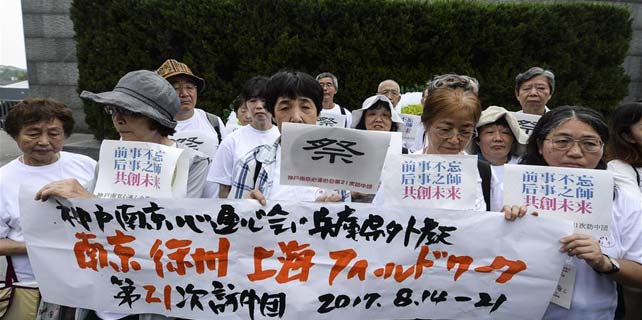Gene-editing expert, 35, gets major award
Feng Zhang, a key member of the Broad Institute of MIT and Harvard, was awarded the Albany Medical Prize, America's most distinguished prize in medicine, on Tuesday.
"Feng Zhang is one of the most creative and original scientists of his generation," said Robert Desimone, director of the McGovern Institute for Brain Research at MIT, where Feng Zhang is a faculty member. "His contributions to the development of CRISPR technology have been truly groundbreaking.
"He has also assembled an outstanding team of young researchers within his lab, and they can all take great pride in the fact that Feng will share this important prize," he added.
Zhang, 35, is one of only eight core faculty at the Broad Institute, a leading genomics research center affiliated with MIT and Harvard.
Zhang is likely to be the youngest recipient of the Albany Prize, the second-highest valued prize in medicine and biomedical research, with five previous recipients going on to win the Nobel Prize.
Each year's Albany Medical Center Prize winner demonstrated significant outcomes that offer medical value of national or international importance.
Zhang received the prize jointly with Emmanuelle Charpentier, director of the Department of Regulation in Infection Biology at the Max Planck Institute for Infection Biology in Germany; Jennifer Doudna, professor of Molecular and Cell Biology and Chemistry at the University of California, Berkeley; Luciano Marraffini, associate professor of bacteriology at The Rockefeller University; and Francisco M. Mojica, associate professor of microbiology at the University of Alicante in Spain.
The five recipients were chosen for their fundamental and complementary accomplishments related to CRISPR-Cas9, a gene editing technology that has allowed scientists to easily and efficiently edit genes by splicing out and replacing or altering sections of DNA in the cells of any organism, including humans.
The editing technique has been compared to "cutting and pasting" in a word-processing program.
"Imagine that you are writing a novel, and you are proof reading the novel, and there are some typos you want to fix. Say, in the novel it says 'twinkle twinkle big star', but what you really want to say is 'twinkle twinkle little star'. What you have to do is to go in and replace 'big' with 'little'," Zhang explained in a video interview with STAT news.
"In this case, the Cas9 can go in to the genome, and find where the 'big' is and make a cut with the word 'big', and provide the cell with a repair template of the word 'little'," Zhang said.
CRISPR-Cas9 has revolutionized biological research in tens of thousands of laboratories worldwide. Zhang has been recognized for his landmark demonstration that CRISPR-Cas9 could be harnessed for mammalian genome editing.
His lab has continued to explore the CRISPR system. His long-term goal is to develop novel therapeutic strategies for disease treatment.
"I'm not patient. If something can be done today, I will not wait till tomorrow," Zhang once said.
Zhang was born in Shijiazhuang, in Hebei province in 1982. Both of his parents were computer programmers.
At age 11, he moved to Iowa with his mother. He received his AB in chemistry and physics from Harvard College and his PhD in chemistry from Stanford University.
leshuodong@chinadailyusa.com









